This article was co-authored by Trudi Griffin, LPC, MS. Trudi Griffin is a Licensed Professional Counselor in Wisconsin specializing in Addictions and Mental Health. She provides therapy to people who struggle with addictions, mental health, and trauma in community health settings and private practice. She received her MS in Clinical Mental Health Counseling from Marquette University in 2011.
There are 25 references cited in this article, which can be found at the bottom of the page.
wikiHow marks an article as reader-approved once it receives enough positive feedback. In this case, 86% of readers who voted found the article helpful, earning it our reader-approved status.
This article has been viewed 71,797 times.
Anxiety disorders can range from post-traumatic stress disorder to panic disorder, but there is one common thread in these conditions: fear. While everyone struggles with fears daily, in the case of anxiety, these fears significantly affect a person's ability to function at work, in school, or in relationships. Having an anxiety disorder can feel hopeless, but there are ways to help.
Steps
Using the Four "A"s
-
1Employ the Four "A"s approach. For most situations that cause anxiety, there are four ways to deal with them: Avoid, Alter, Adapt, or Accept. The first two focus on changing the situation. The second two focus on changing your own reaction. Try out a combination of these approaches and see what works best for you, keeping in mind that what works in one situation may not work for another.[1]
-
2Avoid stressors when possible. The first A stands for "Avoiding unnecessary stress." Take a look at what's causing stress in your life. Keeping a journal of when you feel stressed and what's going on in your environment and relationships when you feel that way can help you identify triggers for your anxiety.[2]
- One source of anxiety may be feeling like you are stretched too thin. Learning to say "no" when you need to can help remove that unnecessary stress.[3]
- Dealing with unpleasant people or situations can also trigger anxiety. If that happens, try talking to them about it, or limit how much time you spend with that person.
- Certain issues, such as politics or religion, can also trigger feelings of anxiety. Try to avoid discussions about those things if they cause you anxiety.
Advertisement -
3Alter the stressor. In some cases, you can't just avoid a situation that produces anxiety. However, you may be able to alter the situation so that it doesn't cause as much anxiety. Often, this means taking a new approach to it, or trying out new communication tactics.[4]
- For example, if your daily commute to work makes you feel anxious, see if you can take a bus or other type of public transit instead.
- Try to alter stressful dynamics in your relationships by being assertive so you can communicate your feelings and needs in a clear, direct, and respectful manner.[5]
- For example, if you feel anxious because your mom calls you every day, you might say, "Mom, these daily calls are a lot of pressure. Let's chat on the weekends, okay?"
- If time management causes you anxiety, use a calendar or scheduling app to keep track of your responsibilities and plan ahead for projects or events.[6]
-
4Adapt when you need to. In some cases, you can't do anything about the stressor. Maybe you can't change your job right now, even though you don't like it. Maybe you get stuck in a traffic jam that's simply going to make you late to work that day. In these cases, focus on changing your own response to the situation by adapting to it.[7]
- Reframe problems and anxiety triggers. If the customers at your job stress you out, think, "This experience dealing with difficult people will serve me well in the future!"
- Look at the big picture. The next time you feel anxious, put things in perspective by asking yourself: "Will this matter in a month? A year?"
- If unrealistic standards have you feeling anxious, remind yourself that allowing yourself to make mistakes and adapt to them will make you more successful in the long run.[8]
-
5Accept what you can't control. The illusion of control motivates a lot of people to place pressure on themselves through "should" statements: I "should" get over a loss, I "should" enjoy my job, I "should" have a great relationship. However, you cannot control others' actions and responses, only your own. Remind yourself that there are things beyond your control, and work on letting go of what you can't change.[9]
- For instance, instead of becoming anxious because you can't get your partner to do what you want, focus on how you communicate with them.
- Research suggests that looking for the "silver lining" of stressful or negative events can actually reduce feelings of anxiety and depression.[10]
- Try to see mistakes not as "failures" but as opportunities for growth and learning. Even reframing daily experiences like missing the bus can help you feel less anxious and upset.[11]
Problem-Solving in Your Head
-
1Strategize ways to manage stress. Anxiety can build up as a result of too much stress in your daily life. Adequate problem-solving and stress-management is required to help you overcome these stressors and minimize feelings of anxiety. With people who have a natural tendency towards anxiety, the need is strong to try to control the environment even when that is not possible. Focus on what you can control.[12]
- Grab a notepad and write down all the things that are worrying you at the moment. Brainstorm how you can fix the issues or prepare for them more appropriately.[13]
- For example, if you are worried about an upcoming speech, make a plan to practice the speech nightly and, at some point, deliver it in front of a mock audience.
-
2Challenge anxious thoughts.[14] People with anxiety often increase their feelings of worry with unhelpful or irrational thought patterns. Perhaps you are worried about your sibling who is traveling across country. You may develop intense, anxious feelings if you miss hearing from your sister or brother even by a few minutes. It may be helpful to challenge your worries with realism.
- For instance, instead of assuming your sister has been hurt, you might think something like, "Maybe she's in traffic," or "She might not be able to reach her phone."
- You could even look up traffic reports along her travel route.
-
3Remind yourself that you are not in danger. If you suffer from an extreme form of anxiety such as regular panic attacks, your body goes into "flight or fight" mode even when you may not be in danger. People who experience panic attacks may feel as though their lives are being threatened and a feeling of doom may come over them. Rational thinking can also help with such scenarios.[15]
- Unless you're being threatened in some way, repeat this phrase over and over again until you begin to feel calm: "I am not in danger. I am safe."
- It may even help to sit or stand in a corner so that you can see all around you to verify that you are safe.
-
4Refrain from pushing away your feelings. Feelings of anxiety may be heightened when you try to ignore them or push them away. In some cases, fear of anxiety causes more anxiety. When when you start to feel anxious, soak up the feeling with a long deep breath. Notice what you are thinking and how you are feeling, but try not to react to these feelings, just mindfully take stock of your mental and physical state.[16]
- You may even use light humor when you sense anxiousness approaching. Say things to yourself like, "Bring it on!" or "Give me what you've got!"
- Acting fearless in the face of anxiety and simply accepting that you are feeling anxious may help the feelings to pass more quickly.
Taking Care of Yourself
-
1Practice deep breathing. Imagine your stomach as a balloon. Inhale fully and deeply through your nose, feeling your stomach expanding. Then, exhale, gradually allowing your stomach to collapse.[17]
- Breathe deeply during a panic attack and throughout the day to reduce stress and anxiety.[18]
- Aim to spend 20-30 minutes each day practicing deep breathing.
- Reciting a script in your head like "I am safe." or "I am perfectly calm." may help, as well.
-
2Train yourself to be calm with meditation or yoga. Daily engagement in calming activities can help you rid yourself of anxiety or keep these feelings under control. Meditation involves mindfully clearing your mind of fears or worries and focusing on cleansing, relaxing breaths. Yoga incorporates stretching and body positions called asanas with meditation and breathing techniques for a full-body calm.[19]
- Look up meditation for beginners or online or sign up for a yoga class at a fitness studio near you.
-
3Eat several balanced meals per day. Anxiety can be exacerbated by not taking care of your body. Have a healthy, balanced meal of lean protein, fruits and vegetables, whole grains, and low-fat dairy several times a day (i.e. between 3 and 5 meals daily) Plus, keep energizing snacks like fresh veggies, fruit, and nuts on hand to fuel your body in between meals.[20]
- Eat foods high in healthy fatty acids like salmon and avocado in addition to complex carbohydrates such as whole grain oats and brown rice to manage anxiety naturally.
- Avoid caffeine and alcohol. These substances can actually make anxiety worse. Both alcohol and caffeine can make you edgy and interfere with your sleep cycle.
-
4Engage in regular physical activity that matches your abilities. This can include walking your dog through the park or a more vigorous exercise regimen such as high-intensity interval training.[21] Research shows that regular exercise provides mood-enhancing endorphins that not only help build self-esteem but take your mind off what's making you anxious.[22]
- Try rotating between several different activities, which can help you stick to a regular routine.
- For example, you might like participating in group sports most. However, you might also really enjoy swimming. Try to make time for both!
- Always speak to your doctor before starting a new fitness regimen.
-
5Strive to get enough good quality sleep. Most adults need approximately 8 to 9 hours of sleep a night. Both stress and anxiety can interfere with sleep and keep you up at night. If you have all your worries running on a loop through your mind, it can be hard to settle down for sleep. However, being sleep deprived can worsen anxiety. If you are a chronic worrier, you are at risk of getting insufficient sleep.[23]
- Wind down your evening with relaxing activities to help you fall asleep. Take a soothing bath, listen to a mindfulness meditation recording, or read a book.
- Try to avoid excess stimuli from electronic devices, as the blue light can keep your brain wired and prevent sleep.
- Avoid drinking coffee, caffeinated drinks, or eating chocolate before bedtime.
- Reserve your bedroom for sleeping and relaxing only. Refrain from watching TV in bed or doing work.
-
6Participate in activities that you enjoy.[24] A terrific way to fight an anxiety disorder is to frequently do things that take your mind off your worries and leave you feeling peaceful or happy. These activities depend on your personal preferences, but may include: sewing or knitting, reading a good book, praying or other spiritual practices, talking on the phone to a friend, listening to music, or playing with a pet.
Getting Outside Help
-
1Seek professional help. If anxiety still holds you back after trying the recommendations listed above, seek professional help such as a mental health counselor or psychologist. This professional can evaluate you to determine which type of anxiety disorder you are suffering from and suggest treatment options for managing the symptoms. Common treatment options for anxiety are:[25]
- Psychotherapy. A trained counselor or psychologist will help you come up with strategies to overcome your worries, like challenging irrational thoughts and coping with stress.
- Medications. Your psychiatrist may prescribe a medication typically prescribed to treat anxiety, such as anti-depressants, anti-anxiety meds, and beta blockers.
- In some situations, an individual will require both psychotherapy and medications to manage anxiety. Regardless, with proper intervention, anxiety is a curable disorder.
-
2Talk about it with someone you trust. Have someone to talk to. It doesn't matter how much they understand about your disorder; just having the ability to discuss your worries with a friend or family member can really help.
-
3Journal. Your mental health provider may suggest that you start journaling or keeping a thought diary in order to target in on some of your common fears and figure out the triggers. Doing so can help you to have more insight into the roots of your anxiety and possibly develop strategies to avoid these triggers.[26]
- Your journal can be a great place to unload anxious thoughts or worries. However, be careful that you do not use it to ruminate and end up making your anxiety worse.
- Each day, write an entry that describes your current mood and any details about the day. Include any concerns you might have, like an upcoming test or a first date.
- Use your journal to strategize ways to relieve these stressors.
- After you have conducted a short brainstorming session, close your journal and make an effort to leave those worries on the page.
-
4Try acupuncture. Alternative treatment approaches like acupuncture have been shown to be effective in managing stress and anxiety. Chinese healers believed that when the body's 'chi' is unbalanced people may suffer from conditions like anxiety or depression. Needles are inserted at key places on the body to relieve any obstructions of the chi and reclaim overall health and wellness. Talk to your mental health provider or primary care physician to see if acupuncture is a viable option for treating your anxiety.
-
5Know that you're not alone. Approximately 40 million Americans struggle with anxiety every day. However, only one-third of those get treatment.[27] Take the necessary steps to get outside help if you cannot manage your anxiety alone.
Expert Q&A
-
QuestionDo anxiety disorders get worse with age?
 Rebecca Ward, LMFT, SEP, PCC, MARebecca A. Ward, LMFT, SEP, PCC is the Founder of the Iris Institute, a San Francisco, California-based business focusing on using somatic expertise to teach individuals and groups the skills to deal with dilemmas using interventions, including her own Original Blueprint® method. Ms. Ward specializes in treating stress, anxiety, depression, and trauma. She is a Licensed Marriage and Family Therapist (LMFT), a Somatic Experiencing® Practitioner (SEP), and a Professional Certified Coach (PCC) accredited by the International Coach Federation (ICF). Rebecca holds an MA in Clinical Mental Health Counseling from Marymount University and an MA in Organizational Leadership from The George Washington University.
Rebecca Ward, LMFT, SEP, PCC, MARebecca A. Ward, LMFT, SEP, PCC is the Founder of the Iris Institute, a San Francisco, California-based business focusing on using somatic expertise to teach individuals and groups the skills to deal with dilemmas using interventions, including her own Original Blueprint® method. Ms. Ward specializes in treating stress, anxiety, depression, and trauma. She is a Licensed Marriage and Family Therapist (LMFT), a Somatic Experiencing® Practitioner (SEP), and a Professional Certified Coach (PCC) accredited by the International Coach Federation (ICF). Rebecca holds an MA in Clinical Mental Health Counseling from Marymount University and an MA in Organizational Leadership from The George Washington University.
Licensed Therapist It depends. It may or it may not. There's this idea out there that anxiety is all in your head, and that's not true. It's the nervous system's response to a perceived threat. Some people may naturally adjust to feelings of anxiety over time while other people are likely going to benefit from therapy and mindfulness practices.
It depends. It may or it may not. There's this idea out there that anxiety is all in your head, and that's not true. It's the nervous system's response to a perceived threat. Some people may naturally adjust to feelings of anxiety over time while other people are likely going to benefit from therapy and mindfulness practices.
Warnings
- Seek treatment early on. Trying to "suck it up" and push through it by yourself without proper treatment may severely worsen your symptoms and/or cause depression. It may also make the recovery process longer and more difficult.⧼thumbs_response⧽
- If you ever feel depressed or suicidal, immediately seek help.⧼thumbs_response⧽
References
- ↑ https://www.helpguide.org/articles/stress/stress-management.htm
- ↑ https://my.clevelandclinic.org/health/articles/8133-stress-10-ways-to-ease-stress
- ↑ https://www.psychologytoday.com/us/blog/culture-in-mind/202006/say-no-stress-learning-how-say-no
- ↑ https://www.nami.org/Your-Journey/Individuals-with-Mental-Illness/Taking-Care-of-Your-Body/Managing-Stress
- ↑ http://www.cci.health.wa.gov.au/resources/docs/Info-assertive%20communication.pdf
- ↑ https://www.nhs.uk/mental-health/self-help/tips-and-support/time-management-tips/
- ↑ https://www.apa.org/topics/resilience
- ↑ http://www.apa.org/monitor/may04/cons.aspx
- ↑ https://www.psychologytoday.com/us/blog/what-mentally-strong-people-dont-do/201705/how-stop-worrying-about-things-you-cant-change
- ↑ Sergeant, S., & Mongrain, M. (2014). An online optimism intervention reduces depression in pessimistic individuals. Journal of Consulting and Clinical Psychology, 82(2), 263-274.
- ↑ http://ggia.berkeley.edu/practice/finding_silver_linings#data-tab-how
- ↑ https://www.helpguide.org/articles/stress/stress-management.htm
- ↑ https://www.urmc.rochester.edu/encyclopedia/content.aspx?ContentID=4552&ContentTypeID=1
- ↑ http://www.anxietybc.com/sites/default/files/RealisticThinking.pdf
- ↑ https://adaa.org/learn-from-us/from-the-experts/blog-posts/consumer/unwanted-intrusive-thoughts
- ↑ https://adaa.org/learn-from-us/from-the-experts/blog-posts/consumer/anxiety-wont-kill-you
- ↑ https://www.nhs.uk/conditions/stress-anxiety-depression/ways-relieve-stress/
- ↑ http://www.stress.org/take-a-deep-breath/
- ↑ https://www.apa.org/topics/mindfulness/meditation
- ↑ https://health.clevelandclinic.org/eat-these-foods-to-reduce-stress-and-anxiety/
- ↑ http://www.adaa.org/living-with-anxiety/managing-anxiety/exercise-stress-and-anxiety
- ↑ https://adaa.org/understanding-anxiety/related-illnesses/other-related-conditions/stress/physical-activity-reduces-st
- ↑ https://www.sleepfoundation.org/mental-health/anxiety-and-sleep
- ↑ http://www.adaa.org/tips-manage-anxiety-and-stress
- ↑ http://www.nimh.nih.gov/health/topics/anxiety-disorders/index.shtml
- ↑ https://www.urmc.rochester.edu/encyclopedia/content.aspx?ContentID=4552&ContentTypeID=1
- ↑ http://www.adaa.org/understanding-anxiety
About This Article
If you're trying to overcome an anxiety disorder, there are lots of helpful techniques you can practice using that can help you feel more relaxed. For example, stress can be a major trigger for anxiety, so try brainstorming ways to reduce stress in your life. If you’re stressing about an upcoming speech, for instance, you can plan to practice every night and deliver it to a mock audience so you feel more in control. Additionally, it might help to remind yourself that you’re not in danger whenever you feel anxious, which will reduce your body’s “fight or flight” instinct. In addition, mindfully take note of your thoughts and feelings, as this will allow you to step back and get some perspective. For more tips from our Counselor co-author, including how to follow the four A’s method, read on!

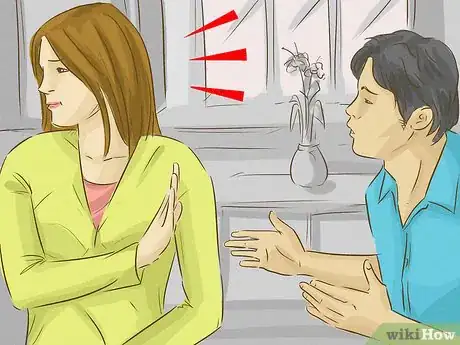


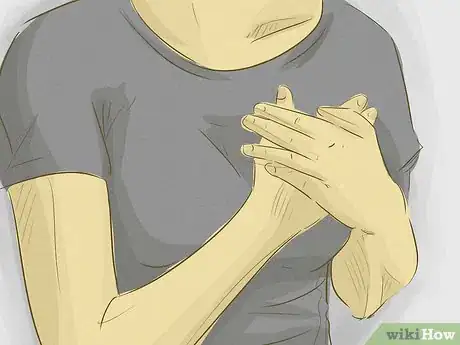





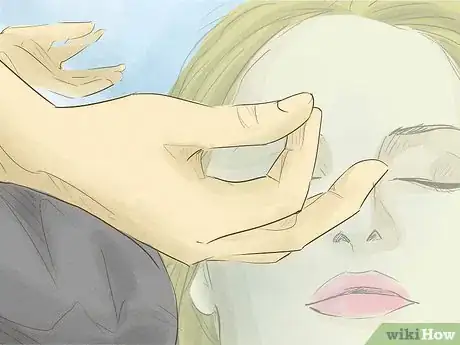


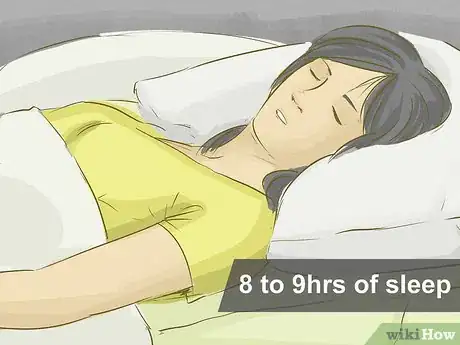

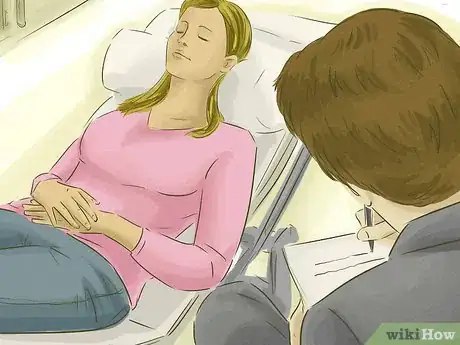



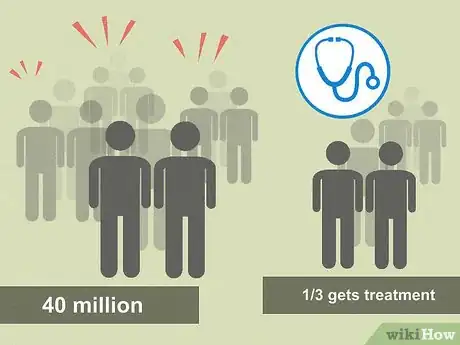





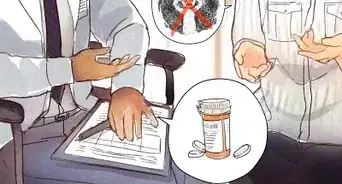
























































Medical Disclaimer
The content of this article is not intended to be a substitute for professional medical advice, examination, diagnosis, or treatment. You should always contact your doctor or other qualified healthcare professional before starting, changing, or stopping any kind of health treatment.
Read More...